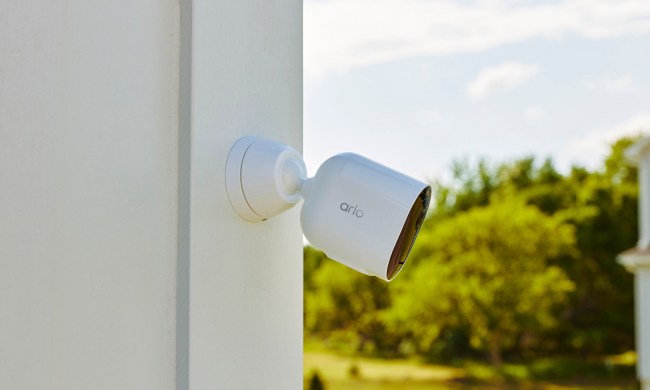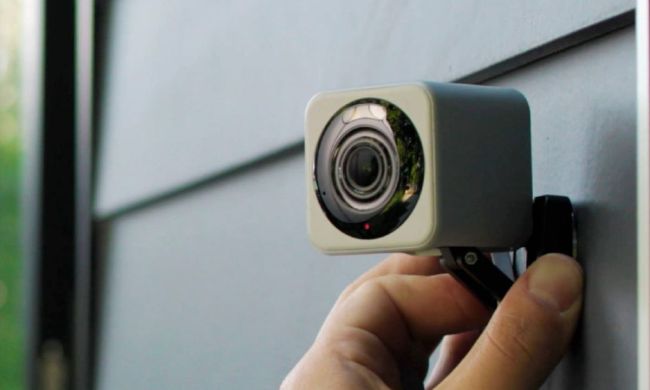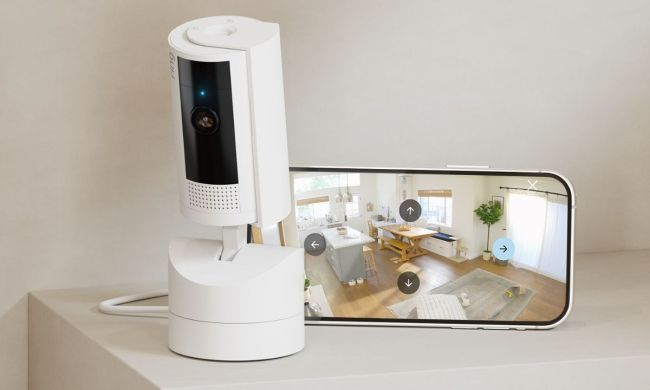Netgear aims to continue its lead in home security with the new Arlo Pro: The new camera system introduces two-way audio and will be joined by a host of new accessories, including a solar charger and a redesigned base station that incorporates a siren and supports local storage. What’s more, the Arlo Pro will gain more advanced functionality in the future thanks to machine learning and crowdsourced intelligence.
In what Netgear is calling Arlo Smart Analytics, the Arlo Pro will one day be able to recognize individual faces. In a home environment, the system could send an alert whenever an unknown face is detected. In a retail environment, alerts for known faces could be set to warn store employees when a known shoplifter returns.
While the camera itself is available now, the analytics features will begin rolling out sometime later this year. Initial functionality will be limited to basic object recognition, with the camera able to differentiate between a person, an animal, a car, and a tree blowing in the wind. This will limit false alarms and unnecessary alerts. As the system gathers more data from real-world use, however, its capabilities will be upgraded.
One feature Arlo Pro users will be able to take advantage of right away, however, is the new two-way audio. Via the iOS or Android app, users will be able to communicate through an Arlo Pro camera to whoever is standing under it. Since it works through the internet via the app, it doesn’t have the limits of a traditional home intercom system.
“What we’re really focusing on for the next generation of product is stopping crime before it happens,” Oleg Fishel, Arlo Product Manager, told Digital Trends. “With response times being between nine and 12 minutes, burglars have time to steal whatever they need even after the call is made.”
While users could warn potential burglars that they’re being watched, Netgear also said there are more benign applications for the technology, such as for Airbnb hosts to communicate with their guests when they arrive.
Like the original Arlo, the Arlo Pro connects to a home network via a base station. The new base station will be backward-compatible with original Arlo cameras, and the new Arlo cameras will work on the older base station, albeit without some of their new functions. The new base station supports connected USB drives for local storage, and also includes a 100-plus decibel siren.
The siren can be activated manually or set by schedules and rules to go off automatically, such as in the event that someone approaches a door when the homeowners are away on vacation.
As with the original Arlo, Arlo Pro cameras connect to a base station over a dedicated Wi-Fi highway to ensure uninterrupted coverage regardless of network strain from other devices. It also uses less power than traditional Wi-Fi connections, allowing the Arlo Pro to go for up to six months on a single battery charge.
New swappable, rechargeable batteries and an optional dual-battery charger mean users can always keep spare batteries topped up and ready to go so that a camera is never taken out of service. The Arlo Pro can also be plugged in if preferred.
For cameras mounted on rooftops or in trees, even replacing a battery every six months can be a hassle. To solve this problem, Netgear will be introducing a solar charger in early 2017 that will allow a remote camera to operate indefinitely. The solar panel needs about three days of direct sun to fully charge the battery, but with a six-month battery life, finding a few days of sunshine shouldn’t be a problem.
Other features of the Arlo Pro include RGB-IR night vision that provides detailed images across the frame and from foreground to background, even in total darkness. The motion sensor works to a range of 23 feet, and covers the same 130-degree angle of the camera lens. In addition to the standard iOS and Android apps, the system also offers integration with SmartThings, Apple TV, and Apple Watch.
Arlo Pro systems are available now with prices starting at $250 for a base station and single camera, with additional cameras available individually for $190. Included in the price is seven days of cloud storage, one of Netgear’s biggest advantages over competitors, who mostly offer just a single day of online backup. For more information, visit Arlo.com.



